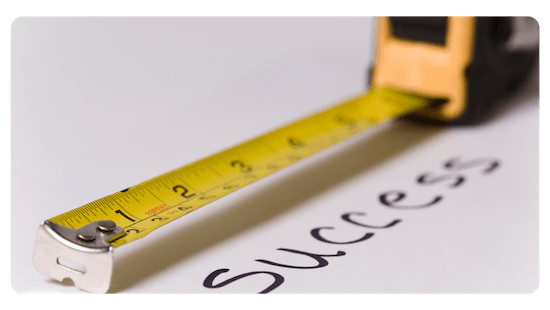Idea In Brief: This article is an overview of a core Fulfilling Strategy principle: measure what matters. “Measure What Matters” means identifying and measuring those few key drivers essential to achieving big, strategic goals and implementing the right operating rhythm to foster a culture of accountability.
(3 Minute Read)
What gets measured gets done as the adage goes, but too many measurements create noise that drowns out the real performance drivers. The result is confusion and inertia. But oh, we love our data.
That may be, but it’s far too easy to hide behind a multitude of metrics that makes us sound smart than it is to have the insight and courage to identify the focus few measures that truly ignite performance.
One of the biggest obstacles to executing strategy is failing to measure what matters, the right way and with the right frequency. Let’s talk about how we can:
- Identify the Focus Few Lead Measures
- Create Dashboards and Manage Work Utilizing 12-Week Work Plans
- Establish an Operating Rhythm that Fosters Accountability
What Measures Really Matters? Lead Measures
In my experience, organizations don’t need to be reminded to track lag measurements like sales, margin, OI, on-time shipments, or net promoter scores. Instead, companies fail to identify and track the few key lead measures that are essential to success.
Quick Primer: Lag measures are how you measure the targets for your goals. Lead measures are the measures of activities most directly affecting achieving your goal. Check out The 4 Disciplines of Execution: Achieving Your Wildly Important Goals for a terrific discussion of the importance of lead measures.
Should you measure sales $$ (lag measure)? Of course! However, you should measure what drives those sales just as fervently. For example, measure the number of weekly sales calls (lead measure) and the number of weekly customer touch points (lead measure).
Lead measures allow you to shift the focus from the rear view perspective of “how did I do” to the current and actionable view of “how am I doing.”
How Do You Measure What Matters?

Now that we know what to measure, the question becomes how should we measure? Above all, fewer metrics is better. Diffused activity means diminished results. Combat this problem by creating focused dashboards, being transparent and maintaining shorter horizons for work plans.
Focus Few
The real purpose of a dashboard is to be a tool that drives action. It’s the actions resulting from the analysis that drive performance. An organization frankly can’t act on too many measurements.
Avoid “metric fixation” and pare down those dashboards that resemble an instrumental panel of an Airbus A380. Design scorecards with the intention to enhance judgment and facilitate accountability, not overwhelm and demotivate.
The most characteristic feature of metric fixation is the aspiration to replace judgment based on experience with standardized measurement.”
― Jerry Z. Muller, The Tyranny of Metrics
Shorter Horizons: Manage Work 12 Weeks at a Time
Advancing longer-term strategic goals can feel impossible with all of the demands of daily business. To create the urgency essential to making progress on these goals, create team level 12-week work plans and measure the KPI’s weekly.
When Do You Measure What Matters?
By measuring performance against strategic goals daily (individual level), weekly (team level) and monthly (organizational level), strategy execution is integrated into daily awareness and not relegated to something we do when we have time.
In addition, m

Idea into Action
We covered a great deal of territory in this discussion, but a good place to start is to look at the organization’s main performance dashboard or scorecard and analyze how well it does the following:
- How well does our dashboard measure the performance metrics essential to achieving our strategic goals?
- How well does our dashboard reflect the right balance of lag (rear-view) and lead (driver) measures?
- Have we pared our KPI’s or metrics down to the focus few that matter most or could we simplify to be more effective?
Yes, it is true that what gets measured gets done. It’s also true that people want to win and want to know how they are doing. Measuring what matters is an opportunity to leverage these truths, but it requires discipline and a deep understanding of the focus few activities that drive your business.
Understand that dashboards on their own aren’t that helpful. However, dashboards that inspire and fuel the actions needed to achieve strategic goals are priceless.
Please share your thoughts with me on this, and if you’ve found this information helpful, you can help me get the word out by using the links provided and sharing it with a colleague. Thanks!
Work well,


